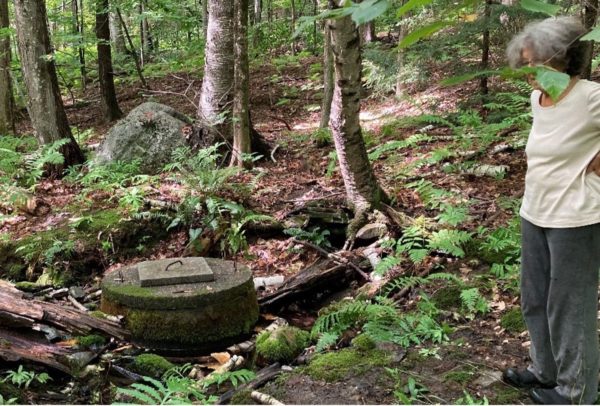
Multiculturalism and Conflict Resolution
To have a group of people with different cultures, you do not need to have varying ethnicities or countries of origin. By nature, any group of people has a variety of culture. Culture can be defined as shared, often unspoken, understandings in a group that shapes identities and the process of making meaning. Conflict amongst and between cultures arises when there are differences in norms, values, and beliefs that dictate appropriate behavior, perceptions of risk and/or uncertainty, established hierarchies, power structures, authorities, and communication methods.
While conflict is not inherently bad, it can impede progress on a project. Resolving or reducing conflict successfully requires both the facilitator and the participants to reflect on their own culture and ability to take the perspective of another. The resolution of conflict begins with understanding the cultures of the people involved in the group. Allowing time and space for the identification of longer-term patterns of attitudes, beliefs, assumptions, interactions, policies, and structures with an emphasis on the emotional context to disputes can provide clarity on where conflict is likely to arise. The dynamic systems approach entails an exploration of attitudes, beliefs, and assumptions to find ways of developing new and constructive patterns within the group. By looking first at the roots of each person’s perspective, the group can more easily define actionable, high-impact solutions.
There are two main functions of any social system, such as a community. Internal integration is where the group has a common identification which provides a source of esteem, status, and a sense of inclusion to the members. The other function is external adaptation where everyone is an outsider that is assessing the expectations of others and using social cues to understand what is appropriate within the environment. A balance of these two functions creates an environment where multiculturalism can thrive, and all members feel valued for their uniqueness as well as confident to navigate new environments.
Utilizing the tools of the Integration-Adaptation model: awareness, adaptivity, accuracy, and accountability, will set a facilitator and a group up for success in collaboration. These core components of the model can be evaluated on an individual level as well as an organizational level:
Awareness of cultural assumptions, cultural rules, racial-ethnic identities, privilege, class, and other components of the perception of ourselves and others.
Accuracy in reading situations, valuing and verifying data, and recognizing preconceived theories, beliefs, and stereotypes.
Adaptivity to situational demands in conflict.
Accountability to self, others, and community by requesting and accepting feedback which is then incorporated into reforms and solutions.
With every individual in a group making sense of and experiencing one another and the environment from a different perspective, conflict in groups is inevitable. Cultural intelligence describes the ability to adapt effectively to new cultural contexts. New cultural contexts occur in daily life whenever at least two people are interacting. Intercultural competence comes with the repeated practice of questioning the generalizability of our assumptions and behaviors.
By establishing a multicultural dynamic within our own organizations and sharing that perspective and philosophy with the communities we serve, we can better facilitate difficult conversations and find solutions to problems with less conflict.

The Story of Jo and a Private Spring in Tempe, Maine
In August 2021, RCAP Solutions received a referral from Maine Center for Disease Control for assistance regarding a confirmed cluster of illness in the rural western Maine town of Temple. Eight people had been hospitalized with intestinal illness associated with drinking water from a private spring, to include Jo, an 80-year old woman whose home has been directly supplied by the spring for over 40 years. At least a dozen other families rely on water from the spring collected at a roadside tap.
THE CHALLENGE
Upon meeting with Jo, RCAP learned that a sample collected at her house tested positive for total coliform bacteria, and specifically for E. coli. Jo had been stricken on her 80th birthday and endured eight days of illness. Her stool tested presumptive positive for Campylobacter bacteria.
Jo and her partner had built their home and sanctuary on a quiet dirt road in Temple over 40 years ago. It had always been gravity-fed water by a supply line from the spring on a neighboring property, to which they had deeded access. Jo loved the sweet, clear water, despite the occasional salamander that plopped out of her tap. To her knowledge, the water had never been tested prior to this incident. Now, a single woman, on a fixed income, Jo was concerned about the safety of her home’s water supply – as well as for the safety of other people of the community she knew relied on the spring. She knew there were additional unreported illnesses among the users who were reluctant to come forward, fearing they would lose access to the spring’s roadside tap.
Temple’s Town Clerk joined RCAP and Jo on an inspection of the spring, located up a wooded trail across the road from Jo’s home. The concrete casing spring box set low in a depression, on a sloped grade. Around the spring box, the depression collected rain run-off and other organic debris. The spring box lid was not secure, which allowed contaminated water inflow and the casing did not appear to go deep enough into the ground to prevent surface water seepage infiltration. Looking inside the spring box, one could see the two lines that gravity feed Jo’s home and the roadside tap. Debris floated on the surface of the water, and roots and vegetation had grown in under the cover and penetrated the casing. There was no protection of the water from natural sources of bacteria or harmful organisms. The water was not safe to drink.
THE APPROACH & SOLUTION
RCAP worked with the Maine Drinking Water Program to obtain appropriate signage and the Town Clerk posted the roadside tap, indicating the water was non-potable and should be boiled for at least 5 minutes before consuming. Efforts were underway to locate the elderly out-of-town owner of the property to encourage the removal of the roadside tap.
At Jo’s home, it was strictly bottled water for drinking, and boiling water for other uses, such as dish washing. Jo decided she needed a reliably safe source of drinking water for her home. RCAP discussed with Jo options that included installing filtration and disinfection treatment of the spring water or obtaining a new drinking water source. Jo decided to have a well drilled on her own property. RCAP provided assistance in collecting and evaluating proposals to drill the well and exploring funding opportunities available to Jo to complete its installation and directly supply her house. At the height of summer, following two years of drought and Covid-related shortages, well drillers were in high demand and under significant backlog.
The well was finally drilled November 10, 2021. After the initial flushing and disinfecting by the well driller, RCAP conducted an on-site assessment of the well and collected water quality samples from Jo’s kitchen. The results showed elevated coliform bacteria. The water system would need to be disinfected again, with particular attention to the internal plumbing, which likely had some stubborn contamination after over 40 years of using the spring. After the second disinfection, conducted by a local plumber, the bacteria count was down from 276 colonies to 28 colonies, but the system was still not clean. RCAP noted that the pH of the water was slightly high and was likely interfering with the disinfecting chemical, and recommended an additional disinfection using a pH-buffered product.
It took a village, but on December 20th, RCAP supervised a successful buffered disinfection of the well and plumbing. This effort was made possible due to generous contributions of time and material by a local plumbing firm, a supply company, and a water treatment contractor. After a final confirmation test indicated the water source and system was free of bacteria, Jo was finally able to drink from her kitchen faucet with confidence.
RCAP issued a comprehensive assessment report to Jo, complete with recommended monitoring of the water quality and an initiated well head protection plan.
THE IMPACT
After over 40 years of drinking from a spring with unreliable water quality, and at least once being severely ill due to it, this 80-year old resident of rural Temple, Maine continues to live independently in her wooded retreat, able to drink from her kitchen tap confident that her water is safe.
At this time, the roadside tap remains “posted”. The owner has not elected to shut it down. RCAP continues to work with Temple town officials, encouraging them to stay diligent in educating and warning residents of the risks of using water from unreliable sources, and suggesting that they consider providing an alternate safe drinking water supply for public use.
RCAP continues to support rural communities and private well owners with training on using and maintaining private water sources, on-site private well and spring assessments and source water testing.